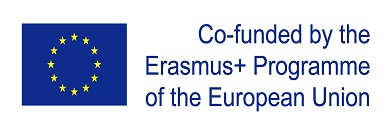Context/Background of the project
According with the conclusions of the European Council of October 2017 and in line with the “Digital Education Plan” of 17 January 2018, commissioned by the European Commission, education and training systems of the EU have to make better use of innovation and digital technology and support the development of relevant digital competences needed for life and work in an age of rapid digital changes. Therefore, schools from 6 countries decided to set up this project, whose aims are to acquire, develop and improve new skills, common strategies and exchange of good practices improving learning outcomes, enhance equity, improve efficiency, boost entrepreneurial competences and support digital entrepreneurship.
Objectives
The objectives strived for are:
- promote innovative pedagogies and methods for teaching, learning and assessment, supporting educators and learners to use digital technologies in creative, collaborative and efficient ways;
- promote the acquisition of skills and key competences (particularly digital skills, intercultural and language competences and entrepreneurship);
- promote intercultural dialogue and encourage cooperation through all forms of learning in cooperation with other relevant policies, educational stakeholder and the labour market;
- strengthen the professional and educational profile of teachers;
- trigger innovation and reinforce the response of education systems to the main challenges of today's world.
Number/Profile of participants
The partnership is made up of 6 different schools from Austria, Belgium, Cyprus, Greece, Italy and Spain. The target participants are upper secondary school pupils aged 15–18 and teachers. Working groups of 16 pupils (2 alternating groups of 8 pupils) will be formed in each respective school. Together with approximately 54 teachers as a whole, they will take part in transnational learning activities and will act as disseminators for their working group and school community.
Activities/Methodology
The following activities are planned:
Content/regional/intercultural preparations
-Videos to introduce the partner schools and their city
-Preparation of interdisciplinary lesson plans and digital learning materials
-Regional and intercultural preparation of the student exchange
-In-school and external dissemination events
Transnational learning, teaching and education activities
-Job Shadowing and conferences with experts
-Presentation/exchange of the tests implemented and their results
-After study visits to specialized ICT and STEM companies.
-Awards for best creative products
-In-school and external dissemination events
-Exchange with non-participating institutions via Blended Mobility
Description of results
The following results are planned: project website, Facebook/YouTube account, various lesson plans and other digital learning materials (videos, PP-presentations, guidebook, manual for educators, etc.). The OER dissemination of all project results is planned, so that these can be integrated into the school curriculum in other schools and countries.
Description of impact envisaged
The results strived for are as follows:
-education systems that are better aligned to the needs of and opportunities offered by the labour market, and closer links to business and the community;
-improved provision and assessment of basic and transversal skills, particularly: entrepreneurship, intercultural and language competences and digital skills through formal/non-formal education in a LLL perspective
- more strategic and integrated use of ICTs and open educational resources (OER) in education;
- increased motivation for language learning through innovative teaching methods or better links to practical use of language skills required by the labour market;
-Strengthening of teaching staff ‘s didactic skills
-Improved internationalization
-Sensitizing and making society aware of the European dimension of education and of its priorities
-Improvement of attractiveness and visibility of the school’s location
Longer term benefits
After the completion of the project, material as well as immaterial results will continue to be available and can be used by further stakeholders. In addition to that, appropriate tools will be implemented, which constitute a substantial and economic resource for ensuring sustainability. As a result of the activities realized and the achievable results, the following additional long-term benefits can result from the project:
-a change of mindset of the participants involved in the project, resulting in a greater knowledge, a better understanding of the topic and willingness to be more active in their society
-Impulses for further development
-Inspiration for third parties to participate in future Erasmus+ programs
-Transfer of project results to new areas
-Promotion of the EU values




